Note: On this coming Tuesday, December 5, 2017, the US Supreme Court will hear oral arguments in Masterpiece Cakeshop v. Colorado Civil Rights Commission, a case about which I have written extensively at Word Foundations. Alliance Defending Freedom is representing Jack Phillips, owner and operator of Masterpiece Cakeshop, in this case. Like the Pilgrims, Jack is risking everything for religious liberty and rights of conscience. The ruling will have profound implications for the First Amendment rights of every American. You can learn more about Jack’s journey and his convictions here and here. Please be in prayer for this case and its outcome. A ruling is expected in the late spring of next year.
The Extraordinary Adventures of Ordinary Believers Who Worked Out Their Salvation with Fear and Trembling
Part 2
These all died in faith, not having received the promises, but having seen them afar off were assured of them, embraced them and confessed that they were strangers and pilgrims on the earth.
—Hebrews 11:13—
The Pilgrims made up a single local church who, with their pastor, determined to move the church from England to Holland to America. Thus, you could say that America began as a church relocation project.
—D. James Kennedy1—
Key point: Because they remained true to their God and took necessary steps to honor Him with their resources and their lives, the Pilgrims influenced, and continue to influence, the entire world. Our circumstances aren’t the same as theirs, but like them, we have manifold opportunities to die to self and to use our resources for God’s glory. God can use us, just as He used them!
In this two-part series, we’re exploring how the Pilgrims, together, “worked out their salvation with fear and trembling” (see Phil. 2:12) until the time they decided to leave Holland for the New World. This working-out process certainly would continue, and perhaps at some point we can explore how it played out on their voyage across the Atlantic Ocean and in North America. For now, there is a great deal to learn from the experiences they shared up until the time they left Holland in 1620.
In part 1 we examined some of the challenges this Separatist congregation faced in Scrooby in England as they sought to live out their faith in a hostile environment. Weary of being harassed and persecuted and longing for freedom in their religious practices, the group fled England for Holland in 1608. They first resided in Amsterdam, then moved to Leyden a short time later.
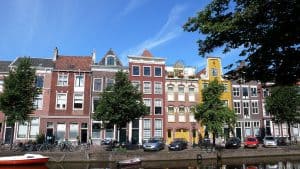
The Holland Years
In Holland, the little group of believers enjoyed the freedom that had eluded them in their native land. They lived there for over a decade but in the end were compelled to leave. In addition to the increasing possibility that war would erupt between Holland and Spain, two other factors motivated the congregation to take serious steps to depart for North America—
-
-
- the moral well-being of their children and
- their desire to spread share the good news of Jesus Christ in distant lands.
-
The Separatists’ concern for their children was related to the economic pressures they faced in their adopted land. In relocating as they had already, they had exhausted their financial resources. Also, typically, immigrants could not find work that paid well, and a family’s poverty invariably put pressures on both parents and children, who essentially had to mature faster than they would under more ideal circumstances. Some children were being heavily influenced by loose moral values in the culture. According to William Bradford, who later would serve as the governor of Plymouth Colony,
[O]f all sorrows most heavy to be borne, was that many of the children, influenced by these conditions, and the great licentiousness of the young people of the country, and the many temptations of the city, were led by evil example into dangerous courses, getting the reins off their necks and leaving their parents. Some became soldiers, others embarked upon voyages by sea and others upon worse courses tending to dissoluteness and the danger of their souls, to the great grief of the parents and the dishonour of God. So they saw their posterity would be in danger to degenerate and become corrupt.2
Bradford continues,
[T]hey [also] cherished a great hope and inward zeal of laying good foundations, or at least of making some way towards it, for the propagation and advance of the gospel of the kingdom of Christ in the remote parts of the world, even though they should be but stepping stones to others in the performance of so great a work.3
Keep the phrase stepping stones in mind, because we will return to it shortly.
The Christians who had fled England for religious freedom and had spent over a decade in Holland now felt compelled to leave Holland for the New World. Chief among their concerns were the moral well-being of their Children and their desire to take the good news of Jesus Christ to, in William Bradford’s words, “the remote parts of the world.”
A Bittersweet Departure
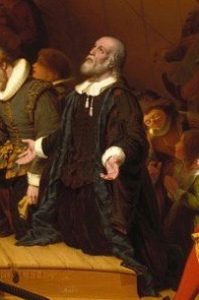 The painting at the top of this page is titled The Embarkation of the Pilgrims. Created by artist Robert Weir, it was commissioned by the United States Congress in 1837 and placed in the Rotunda of the US Capitol in late 1843. The portrait depicts the Separatist congregation’s last service aboard the Speedwell in Delft Haven, Holland, just before the departure of those who were sailing for the New World. More about the painting is available here, but let’s focus in on one of the painting’s central figures for a moment.
The painting at the top of this page is titled The Embarkation of the Pilgrims. Created by artist Robert Weir, it was commissioned by the United States Congress in 1837 and placed in the Rotunda of the US Capitol in late 1843. The portrait depicts the Separatist congregation’s last service aboard the Speedwell in Delft Haven, Holland, just before the departure of those who were sailing for the New World. More about the painting is available here, but let’s focus in on one of the painting’s central figures for a moment.
The congregation’s pastor, John Robinson, who would remain in Leyden, is kneeling in the foreground with his face turned heavenward. Here is a record of his farewell address to those of his congregation who were about to leave. Robinson also would write this farewell letter to those departing. He hoped he and other members of the congregation soon would be able to join them in North America.
The Pilgrims weren’t simply a group of individual Christians, but a congregation that together drew on God’s strength to live out their faith in the world in which the Lord had placed them.
The point here is that these believers weren’t simply a group of individual Christians, but a congregation that together drew on God’s strength to live out their faith in the world in which the Lord had placed them. They also drew strength from one another, but now the realities of life dictated that some of them separate from others in the group. Their good-byes were bittersweet—difficult, yet encouraging for both those leaving and those who felt they needed, at least for now, to remain. We cannot discount the underlying, yet real, influence of the ones remaining on those departing. Because they were a part of this congregation that had endured so much together, the ones staying in Leyden left their mark on the New World as well. God would be with and would guide both groups in the years ahead.
Let’s return now to William Bradford’s account. Having stated the primary reasons the group felt they must leave, Bradford went on to add,
These, and some other similar reasons, moved them to resolve upon their removal, which they afterwards prosecuted in the face of great difficulties, as will appear. The place they fixed their thoughts upon was somewhere in those vast and unpeopled countries of America….4
A Working-Out Process
Their difficulties in Leyden and the struggles they would have in preparing for and making their transatlantic journey notwithstanding, the time the Pilgrims spent in Holland would prove to be extremely beneficial for them and for future generations of North Americans. Robert A. Peterson writes,
[P]erhaps… [the] greatest contribution [the Dutch people made] to America was the 11 years of freedom they gave the Pilgrims—crucial years that helped America’s founding fathers work out their philosophy of freedom and prepare for self-government in the New World.
Free men. For the Pilgrims, this was a new idea. Just what did it mean to be free? With the external pressure of persecution lifted, would the Pilgrims remain true to their original calling? Or would they turn liberty into license and lose their distinctive identity? Time would show that the Pilgrims took seriously their responsibilities of self-government. Indeed, the Dutch experience would prove to be an excellent half-way house to the freedom the Pilgrims would find in the New World. For the next 11 years, the Pilgrims took advantage of all the opportunities that Dutch society offered.…
The 11 years the Pilgrims spent in Holland saw them grow in responsibility, adaptability, and self- government. As Bradford Smith put it in his biography of William Bradford, “The libertarian tradition at Plymouth, with its profound influence on American life, is not primarily English. It is Dutch. Simple justice demands that we acknowledge this…. Thus, during their Leyden years, were the Pilgrims perfecting themselves for the undreamed of work of founding a new nation. In religion, they grew milder and more tolerant. In business and craftsmanship they learned a great deal from the thrifty, ambitious and highly capable Hollanders. Too, the Dutch flair for efficient government and record keeping, the spirit of republicanism and civic responsibility were to bear unsuspected fruit in a distant land.”5
Working out one’s salvation with fear and trembling (see Phil. 2:12) has implications for every area of life. We see this so clearly in the Pilgrims’ journey. Most noteworthy, these believers consistently took the long view, just as did the heroes of the faith in Hebrews 11. They made the most of their opportunities in the present, even as they were mindful of how they might influence the future for God’s glory. Both of the factors that compelled the Separatist congregation to push forward to travel to the New World were centered, not in the present, but in the future.
Investing in Future Generations—and Eternity
We see the Pilgrims’ passion for evangelism later reflected in the text of the Mayflower Compact, which speaks of the signers’ having come to America “for the Glory of God and advancement of the Christian Faith and Honour of our King and Country….” You can read the entire text of the Mayflower Compact here, and you can read about the document here and here.
Accordingly, Bradford, as we already have noted, wrote that his party wanted to carry the good news of Christ to “the remote parts of the world, even though they should be but stepping stones to others in the performance of so great a work.”6
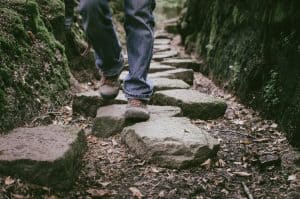
William Bradford wrote that his party wanted to carry the good news of Christ to “the remote parts of the world, even though they should be but stepping stones to others in the performance of so great a work.”
Our children, it has been said, are our links to the future. Moreover, the spread of the gospel is not primarily about building a better world here and now, even though that is a side benefit. It is about eternity!
The Pilgrims would, in their efforts to secure religious freedom for themselves, to spread the gospel to “remote parts of the world,” and to guide their children to live lives of purity and integrity before God, change the course of history and sew the seeds that eventually would become the United States of America.
Their contributions to the betterment of civilized life continue in America to this day. This isn’t just in the ideals they upheld, but in people. The descendants of those who came over on the Mayflower number in the tens of millions! It’s readily understood that not all of these are Christians; in fact, a great many are not. But others are.
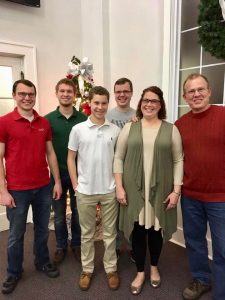
I am honored to have in my circle of friends one Daniel Brewster, a direct, thirteenth-generation descendant of the Plymouth Colony’s Elder William Brewster, through his son Jonathan Brewster. Dan is a devout believer who is active in his church, often operating the sound system for its services and special events. When he lived in Ohio, Dan was involved in vocational ministry through Child Evangelism Fellowship. Currently he works in ministry at the distribution center of LifeWay Christian Resources, one of the world’s largest providers of Bible study materials and Christian services.
Do not misunderstand. A believer does not have to be involved in vocational ministry to serve God through his or her work; he or she can honor Him in any reputable job—and reputable jobs are available in all kinds of work. I’m simply relating ways Dan Brewster has served the Lord through his career.
Dan and his wife Tammi have four sons, and they are effectively passing the baton of their Christian faith on to them, just as the Pilgrims sought faithfully to pass along their faith to their own children.
Building a Heritage and Leaving a Legacy
You may not have a Christian family heritage stretching back through the years. If you don’t have such a heritage, start one! The past is the past. It is done—but from this point forward, you can build a Christ-centered legacy to bequeath to future generations. If you already have this kind of heritage, make sure you are faithful to keep it alive and healthy on the watch the Lord has entrusted to you.
The lessons the Pilgrims offer 21st century believers truly are manifold. Of course, the Pilgrims were imperfect people who did not get everything right. Even so, they got enough right and were willing, with God’s help, to lay everything on the line for treasures of eternal worth.
They even were ready to become “stepping stones” to further God’s work.
May we, relying on divine help as well, also do the same!
Copyright © 2017 by B. Nathaniel Sullivan. All rights reserved.
Unless otherwise indicated, Scripture has been taken from the New King James Version®. Copyright © 1982 by Thomas Nelson, Inc. Used by permission. All rights reserved.
top image: The Embarkation of the Pilgrims by Robert Weir, 1837
Notes:
1Jerry Newcombe, compiler, The Wit and Wisdom of D. James Kennedy, (Fort Lauderdale, FL: Truth in Action Ministries, 2013), 150.
2William Bradford, Of Plymouth Plantation, Harold Padget, ed., (Kindle Locations 588-593). Portcullis Books. Kindle Edition. Original print release, 1920; Kindle edition, 2016.
3William Bradford, Kindle Locations 593-595.
4William Bradford, Kindle Locations 595-598.
5Bradford Smith, Bradford of Plymauth, (Philadelphia: Lippincott, 1951), 78, 93.
6William Bradford, Kindle Locations 594-595.
For further reading:
On this day in Christian history, the Mayflower set sail ~ Ryan Denison, PhD ~ September 6, 2022
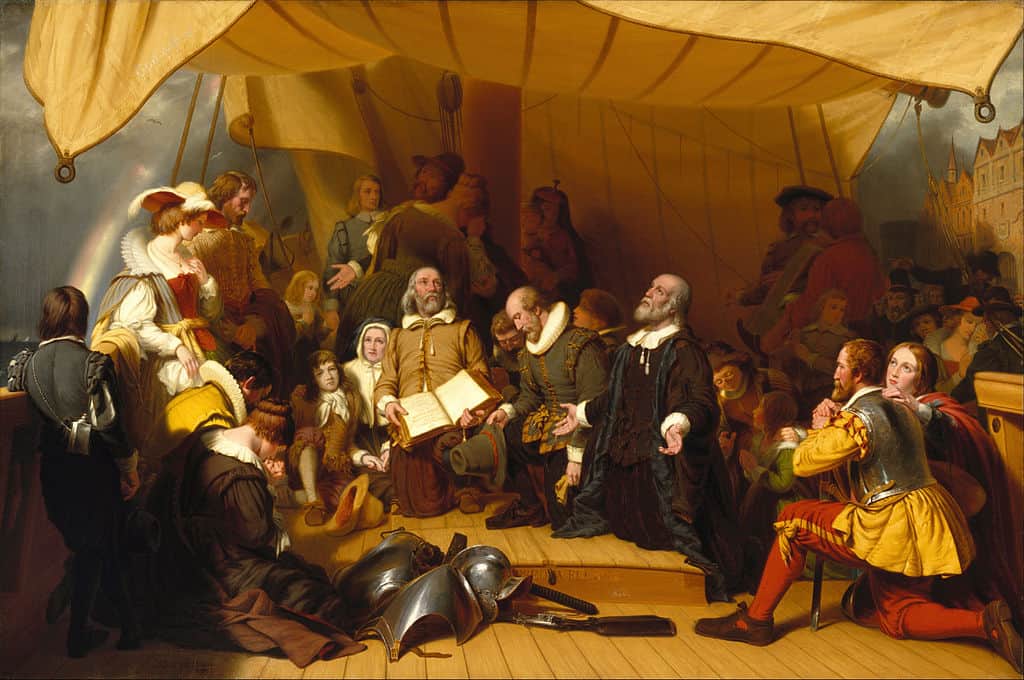
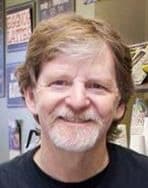

[…] and moved to Holland so we would be able to worship God freely; then, after 11 or so years, we felt compelled to leave Holland because we were concerned about how the culture was affecting our children. We departed for the […]